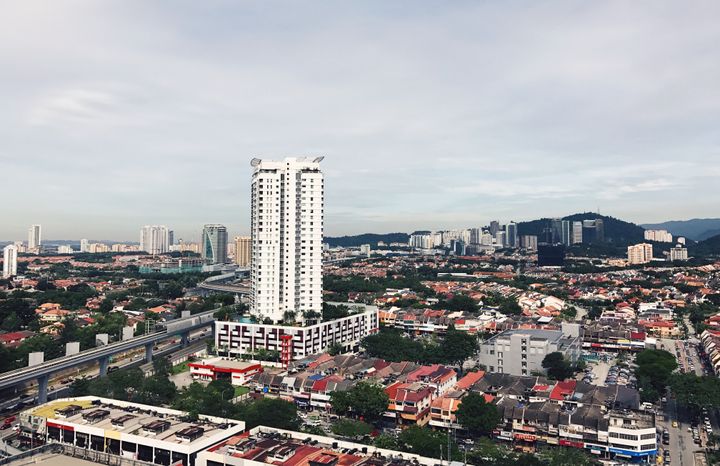Maharashtra RERA Allows De-Registration of Real Estate Projects: What it Means for Builders and Homebuyers
Maharashtra RERA allows de-registration of real estate projects, giving relief to homebuyers. Learn how this decision impacts builders and buyers. #MaharashtraRERA #RealEstateNews #Homebuyers #Builders #DeRegistration

The Maharashtra Real Estate Regulatory Authority (MahaRERA) has recently announced a significant decision that allows developers to voluntarily de-register their real estate projects. This decision has significant implications for both builders and homebuyers. In this article, we will delve into the details of this decision, understand how it affects both parties, and analyze the impact of the move.
What is Maharashtra RERA's De-registration Provision?
The Maharashtra Real Estate Regulatory Authority (MahaRERA) was established in 2016 to regulate the real estate sector in the state. It is responsible for protecting homebuyers' interests, promoting transparency and accountability, and regulating the real estate sector. As part of its regulatory function, MahaRERA has recently introduced a provision that allows developers to voluntarily de-register their real estate projects.
According to the new provision, developers can now apply for de-registration of their ongoing or completed real estate projects by submitting an application to the MahaRERA authority. The application must contain a declaration stating that the project has not received any investment, that all the allottees have been duly compensated, and that the developer has no intention of completing the project. Once the application is accepted, the developer will be required to complete the necessary formalities and pay the prescribed fees for de-registration.
How Does This Decision Impact Builders?
The new de-registration provision by MahaRERA provides a much-needed relief to developers who may be facing financial difficulties or other challenges in completing their real estate projects. It allows them to exit the project legally without facing any penalties or sanctions from the regulatory authority. The provision also enables the developer to channelize their resources towards other profitable ventures and to avoid any further financial obligations towards the project.
However, the developer must ensure that all allottees have been duly compensated before applying for de-registration. If any allottee remains uncompensated, the application for de-registration will be rejected, and the developer will be held accountable for the delay in completing the project. The developer must also comply with all the necessary formalities and pay the prescribed fees for de-registration, failing which they may face penalties and sanctions.
How Does This Decision Impact Homebuyers?
The de-registration provision by MahaRERA provides a sigh of relief for homebuyers who may have invested in a real estate project that is facing delays or has been abandoned. The provision allows homebuyers to seek relief and compensation for their investments from the developer. If the developer fails to compensate the homebuyers or complete the project, they can approach the regulatory authority for redressal.
The de-registration provision also ensures that developers cannot abandon their projects without compensating the homebuyers. It will prevent developers from taking investments and then abandoning the project, leaving homebuyers in the lurch. The provision will also enable homebuyers to recover their investments in case the project is de-registered and the developer is unable to complete it.
Impact of the Decision
The decision to introduce a de-registration provision by MahaRERA is a step towards promoting transparency and accountability in the real estate sector. It provides relief to developers who are facing financial difficulties or other challenges in completing their projects, and it also protects the interests of homebuyers. The provision ensures that developers cannot abandon their projects without compensating the homebuyers, and it enables homebuyers to seek redressal in case of any delay or non-completion of the project.
In conclusion, the decision of Maharashtra RERA to allow de-registration of real estate projects is a significant step towards regulating the real estate sector and protecting the rights of homebuyers. The move will help in streamlining the registration process and ensuring that only serious players remain in the market. It will also bring in more transparency and accountability in the functioning of the sector.
With the new rules in place, real estate developers in Maharashtra will need to be more cautious in their approach towards project registrations and completion. Homebuyers, on the other hand, can now rest assured that they will have a more efficient and effective redressal mechanism in case of any grievances.
Overall, the move is a welcome one and will go a long way in boosting consumer confidence in the real estate sector in Maharashtra. However, it remains to be seen how effectively the new rules will be implemented and enforced.
Note: The information provided in this article about Maharashtra Real Estate Regulatory Authority (MahaRERA) is for informational purposes only. It is not intended as legal or professional advice and readers should consult qualified professionals for advice specific to their circumstances.
By subscribing to AryaBot, you can receive updates on all RERA-approved projects in your desired area directly on your WhatsApp. AryaBot offers a free list of new RERA-approved real estate developments, so you can stay up-to-date on the latest developments in the area.
Know more about AryaBot at ReunionHQ
Explore the list of new RERA approved projects in Maharashtra.
| Mumbai | Nagpur | Nashik |
|---|---|---|
| Pune | Aurangabad | Satara |
| Thane | Ahmednagar | Kolhapur |
| Maharashtra | Dombivli | Palghar |



